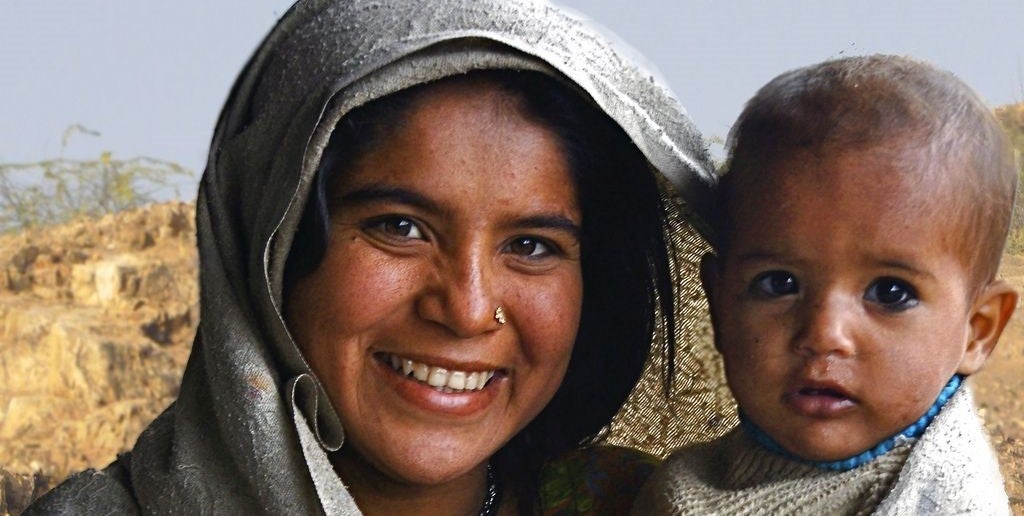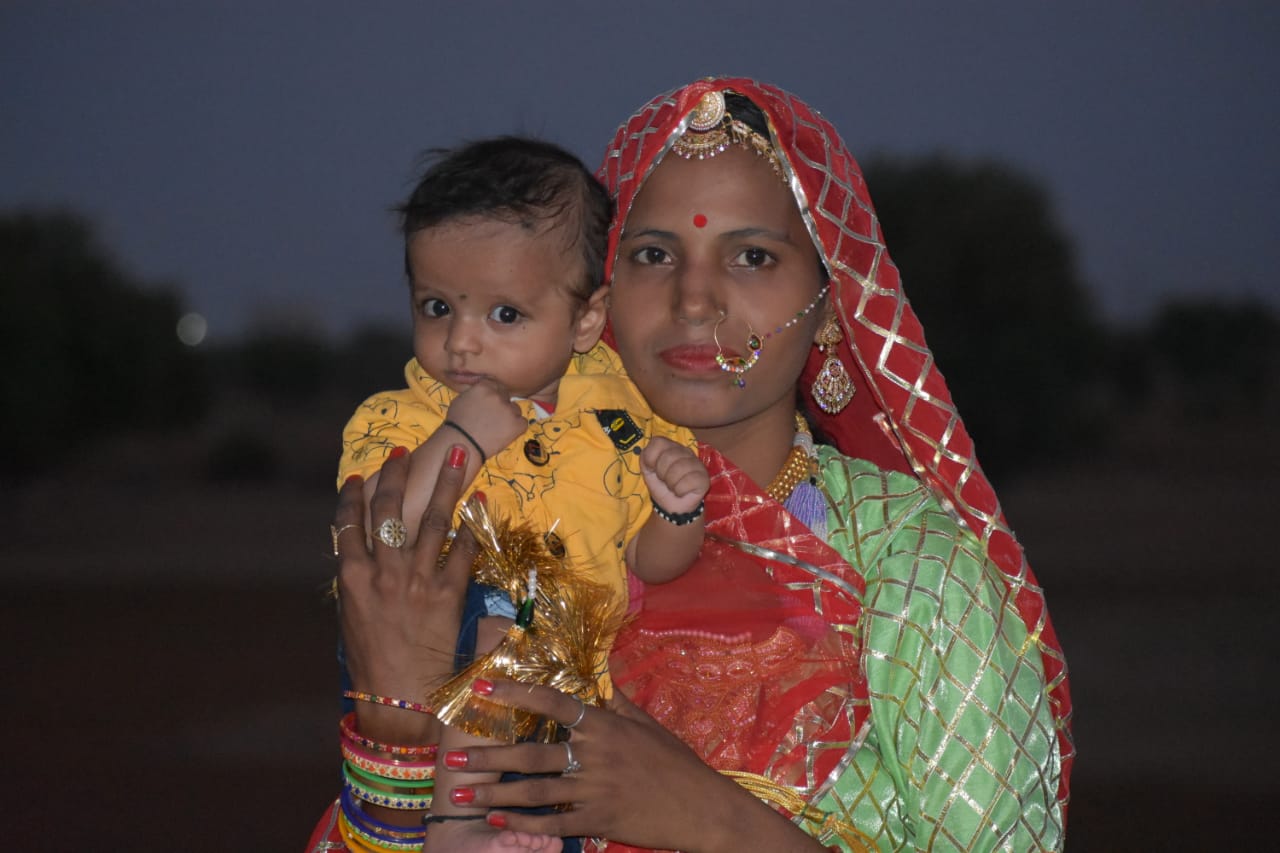 During the pandemic, the anganwadi workers went from house to house to distribute rations (supplementary nutrition) and messages on appropriate nutrition practices.
During the pandemic, the anganwadi workers went from house to house to distribute rations (supplementary nutrition) and messages on appropriate nutrition practices.
Amrita Kumari, a pregnant mother from Muzaffarpur district of Bihar, recalls how a frontline worker under India’s nationwide nutrition program - the POSHAN Abhiyaan – continued to support her, even during the COVID-19 pandemic.
“When I was pregnant,” she said, “the anganwadi didi periodically visited my house to advise me about the importance of ante-natal checkups, regularly taking iron and folic acid tablets and consuming a variety of foods. She also delivered rice, pulses and soyabean to supplement my nutrition. And, since I was pregnant, she alerted the local health team in case I needed support.” For this, Amrita remains ever grateful.
Amrita’s story is one of the innumerable examples of how the POSHAN Abhiyaan reached out to pregnant women, lactating mothers and those with young children, even during the most difficult times.
The program, launched by the Ministry of Women and Child Development in 2018, seeks to ramp up the impact of India’s long-standing Integrated Child Development Services (ICDS) scheme by placing special focus on pregnant women and children below two years of age.
In March and April 2021, the Bank conducted a survey to assess the program’s delivery of nutrition services, whether the nutritional knowledge of beneficiaries had improved and if they had adopted more appropriate nutrition and feeding practices - the key desired outcomes.
The findings demonstrated that the services delivered through the POSHAN Abhiyaan – the receipt of relevant messages, home visits by the anganwadi worker, and attendance at community based events – were associated with improved nutrition behaviors.
The survey also found that:
- More than 60 percent of beneficiaries had heard all nutrition messages.
- More than 80 percent of women had heard the five key messages – regarding the need for regular consumption of iron-folic acid tablets during pregnancy, the intake of diverse foods during pregnancy, breastfeeding in the first hour of a baby’s life, exclusive breastfeeding for the first 6 months and timely initiation of semi-solid and solid foods in addition to breastmilk at 6 to 8 months.
- 56-67 percent of women or children practiced most nutrition behaviours.
- The most commonly practiced behavior was exclusive breastfeeding, practiced by 81 percent of beneficiaries.
- The least commonly practiced behavior was consumption of a minimum acceptable diet by children between 6 to 23 months as only 18.9 percent of children did so.
Some key findings were:
- Four in five (80.7 percent) pregnant women had received information on nutrition.
- The majority (77.2 percent) of those who received this information had received counselling from the anganwadi worker (AWW).
- Two thirds of the women (67.4 percent) had received a counselling visit at home from an AWW in the past month (February-March 2021).
- Over half (54.0 percent) of beneficiaries received take-home rations for more than 21 days in the past month (February-March 2021).
- Given the restrictions on public gatherings during the pandemic, it came as no surprise that less than half of the women (41.4 percent) had ever attended a Community Based Event at the Anganwadi Centre (AWC), and a similar proportion (45.7 percent) had attended a Village Health, Sanitation, and Nutrition Day in the past month (February-March 2021).
- Nearly three-quarters (73.7 percent) of beneficiaries with children 0-23 months old had received growth monitoring services at the AWC in the past year. It is important to note that AWCs were closed for extended periods in most states and some services had been shifted to home delivery during the survey period.
The Poshan Abhiyan strengthens India’s longstanding nutrition program
The POSHAN Abhiyan incorporates learnings from earlier efforts to fill the gaps in the ICDS, in operation for the past 40 years, and strengthens it by and introducing five new approaches:
First, it reduces the endless burden of paper-work on the frontline anganwadi workers (AWW) by providing them with smartphones that enable them to prioritize what they need to do, review what they have done and take action where necessary.
Second, it helps boost the knowledge and skills of these workers by giving them bite-size courses on the nutrition of mothers and children and how to counsel them, in addition to instituting performance-based incentives.
Third, it uses Behaviour Change Communication through a variety of media and public meetings to create awareness about the right way to care for mothers during pregnancy, and what and when to feed the children. Communities were also mobilized to celebrate critical milestones in the lives of pregnant women and children.
Finally, given the multisectoral nature of the challenge, it promotes coordination between all critical line departments that contribute to nutrition, such as health and family welfare, water and sanitation and rural development.
The program offers learnings for the next phase of the Government of India’s program - POSHAN 2.0. Going forward, more intensive focus will be required on strengthening service delivery, improving appropriate complementary feeding and nutrition practices among pregnant mothers and focusing on the nutrition and health of adolescent girls.









Join the Conversation